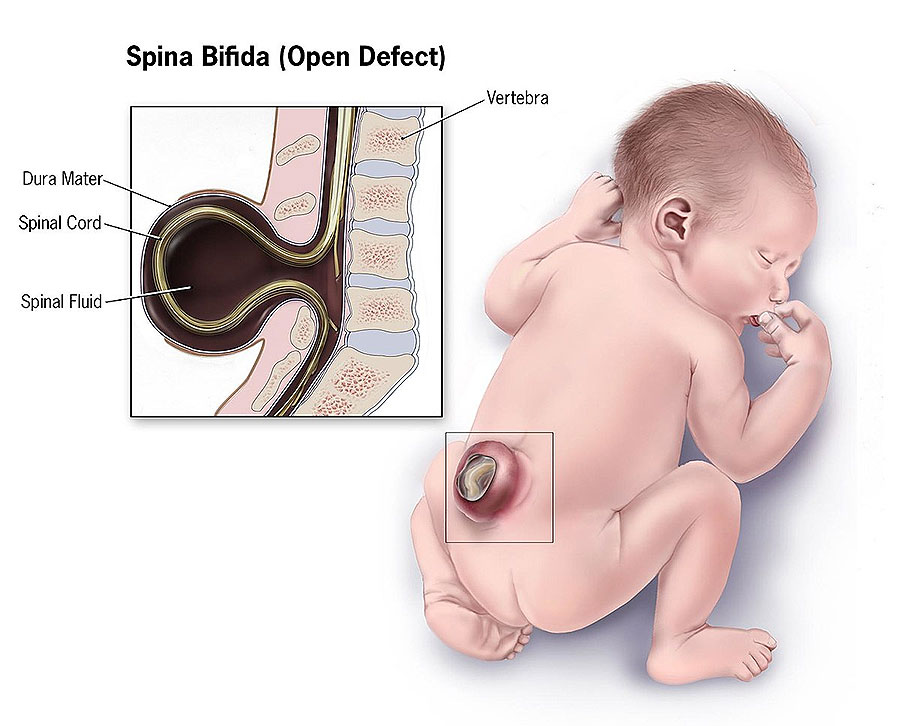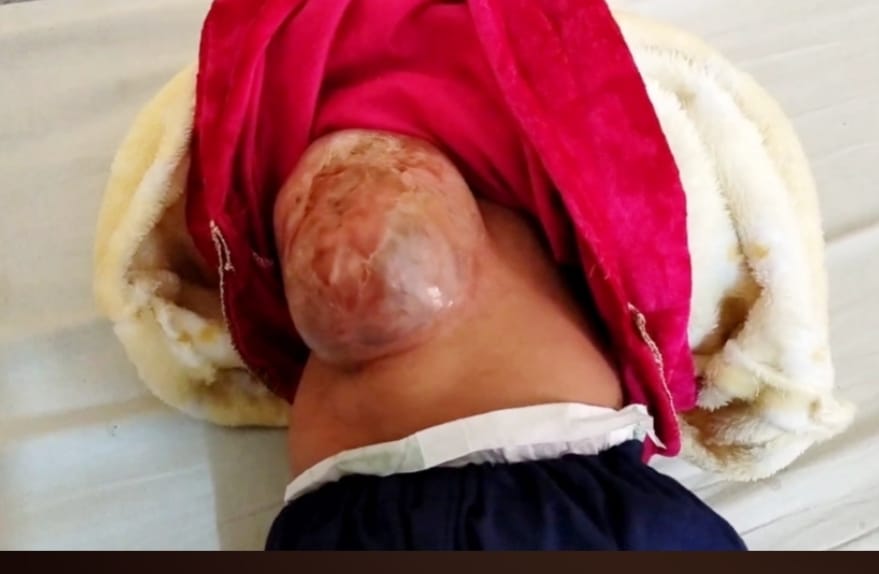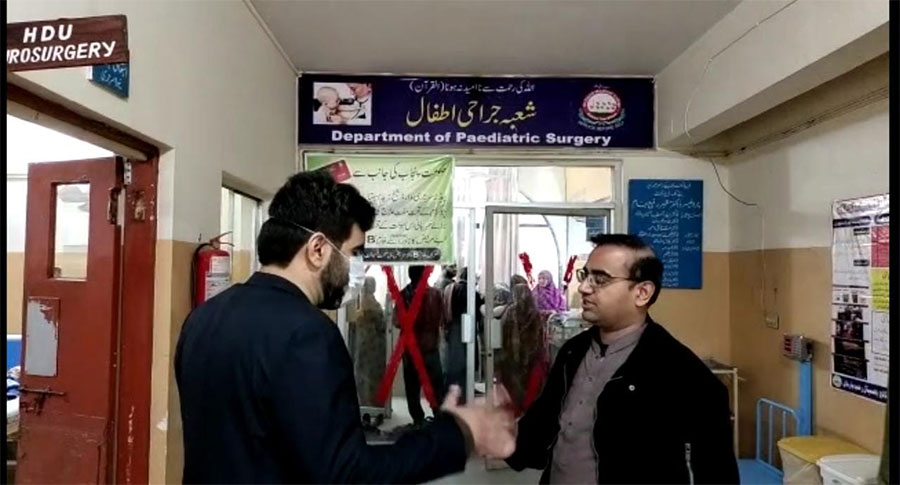
Abdul Jabbar, a tailor from rural area of Bagho Bahar town, works very hard every day to provide for his family. Despite his limited income, he has big plans for his family. His world, however, came a to crashing halt after he found that this his seventh child, an eight-month-old baby girl, is suffering from spina bifida.
She was born with a small spina bifida tumor on her back and this has been growing over the passage of time, he said. His daughter is currently under treatment at Shaikh Zayed Medical College and Hospital in Rahim Yar Khan, which is almost 45 kilometres away from his place of residence.
He shared that all his other children are healthy, adding that they were all born with a gap of one to two years. The couple didn’t get any ultrasound done until the fourth month of his wife’s pregnancy. The doctors of the Department of Pediatrics suggested an operation and then admitted his daughter, he said, adding that he is hopeful about the operation. There is, however, a 50% chance of improvement.
Spina bifida is a birth defect that occurs when the spine and spinal cord don’t form properly. It’s a type of neural tube defect. The cases of spina bifida have increased to a dangerous level in South Punjab, Sheikh Zayed Medical College Hospital (SZMCH) Professor Doctor Jam Mazhar told this scribe. Currently, 50,000 babies are born every year with spina bifida across the country.

He remarked that spina bifida is more dangerous than polio and the main cause of this disease is the lack of folic acid in pregnant woman. Women who are at the age of giving birth to babies face food shortages and folic acid deficiencies, which cause spina bifida in newborn babies.
A study even showed that in one thousand births, seven to eight newly born babies suffered from this disease, he added.

According to Assistant Professor Dr Syed Asif Shah, who works at the hospital’s Department of Pediatrics, spina bifida is a by birth disease in which a tumour appears in the back of a body. He said that the main reason for this is the deficiency of folic acid in the first three months of pregnancy. He even said that they operate on five to six patients every week, adding that they treated 280 spina bifida patients in 2022.
Patients with spina bifida can live to a maximum of 20 years, the doctor said, adding that the nervous system of spina bifida patients is usually damaged and leads to problems such as incontinence of urine and stool, loss of skin sensation, weakness and paralysis of the legs. He said that the percentage of patients is increasing as the percentage of the population increases.
The disease can, however, that the diseases can be identified in ultra sound of women who are at least four months pregnant, he shared. In Europe, if doctors diagnose spina bifida in a pregnant woman, then women end up aborting the baby, Dr Shah added.

It is important to spread awareness about this disease, Dr Shah said, adding that the government has been spreading awareness about it in different cities. It is, however, interesting to note that spina bifida cases are declining in cities and increasing in rural areas. The government should hold awareness drives in rural areas.
SZMCH Registrar Dr Azeem Ahmed, who is also a pediatric surgeon, said that spina bifida cases are being reported more in areas such as Jamal Deen Wali Town, Sadiqabad tehsil.
Chief Executive Officer Dr Hasan Khan said that lady health workers have been tasked with spreading awareness about the disease in rural areas of the district. No proper campaign has, however, been launched, he remarked.
The spokesperson of the Sheikh Zayed hospital in Rahim Yar Khan Dr Ilyas shared that all operations are conducted by the Department of Pediatrics are free of cost and the hospital bears the cost of the medicines too.
from Health News - Latest breaking Health News - ARY NEWS https://ift.tt/2MPQWDr


0 Comments